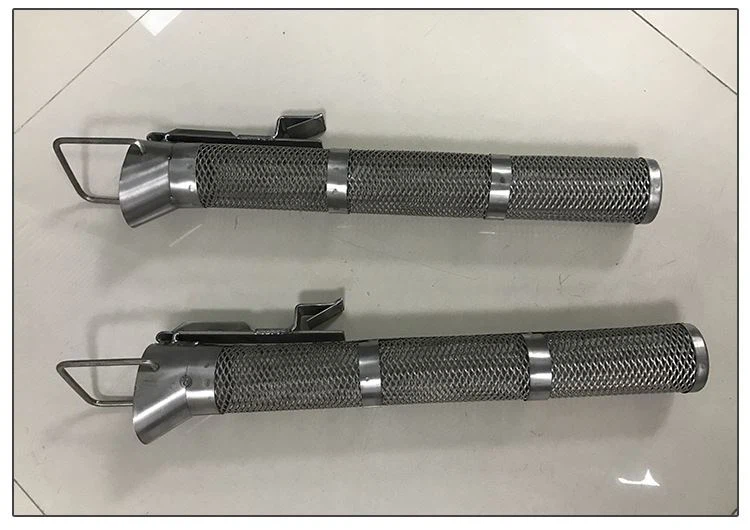Titanium anode basket hook for electroplating
Titanium Anode Baskets for Electroplating are specially designed to hold anode materials securely while ensuring optimal electrolyte circulation and current efficiency. Made from high-purity titanium mesh or perforated sheet, these baskets offer excellent corrosion resistance, lightweight strength, and long service life in acidic and alkaline plating baths. Ideal for nickel, copper, zinc, and precious metal electroplating, titanium anode baskets help improve plating quality, reduce sludge buildup, and support consistent metal deposition.
Boost electroplating efficiency with high-performance titanium anode baskets – featuring MMO (Ir-Ta) or platinum coatings for extended lifespan, low energy consumption, and superior conductivity in harsh plating baths.
Base Material | Titanium, Grade 1 or 2 |
Coating Material | RuO2/IrO2, Platinum, or without coating |
Coating thickness | 1-20 um, customize |
Material Shape | Diamond Mesh, Anode basket, customize |
| Types | Handlehook, square hook, back hook, etc. |
Life Span | 1-5 Years, depends on the working conditions |
Description of Titanium basket anode
Titanium anode baskets are essential tools in electroplating, designed to hold anode materials in titanium mesh or perforated titanium form for optimal solution flow. Known for their high corrosion resistance and durability, electroplating titanium baskets perform reliably in harsh chemical environments. They enhance plating efficiency, allow easy anode replacement, and support consistent metal deposition in processes like nickel, copper, and gold electroplating.
Step-by-Step Guide: How to Use Titanium Anode Baskets for Electroplating
Prepare the Basket
Ensure your titanium anode basket is clean and contaminant-free before use. Residual impurities can compromise plating quality and anode efficiency.
Load the Anode Material
Fill the titanium mesh basket with anode metal (nickel, gold, or copper pellets). Avoid overloading—allow space for electrolyte flow to ensure uniform plating distribution.
Connect to Power Supply
Attach the titanium basket to the positive terminal (anode). Connect the cathode (object to be plated) to the negative terminal.
Immerse in Plating Solution
Submerge both the MMO titanium anode basket and cathode into the electroplating bath, ensuring no contact between them to prevent short-circuiting.
Set Voltage & Current
Power on the rectifier and adjust voltage/current based on your plating process (e.g., hard chrome plating: 4–6 V, 15–50 A/dm²).
Monitor Plating Quality
Track deposition rate and coating uniformity. Adjust parameters if needed to avoid burning or dull finishes.
Remove & Rinse the Basket
After plating, disconnect the titanium anode basket, rinse with deionized water, and store properly to prevent oxidation.
Post-Use Cleaning
Clean the platinum-coated titanium anode with a mild acid solution (e.g., 10% HCl) to remove scale and extend service life.
Titanium Anode Baskets Application
Electroplating & Metal Finishing: Gold Plating (Jewelry, Electronics), Nickel Plating (Automotive, Aerospace), Chrome Plating (Hard Chrome for Industrial Parts), Copper Plating (PCB Manufacturing), Zinc-Nickel Alloy Plating (Corrosion Protection), Tin Plating (Food Packaging, Electronics)
- Wastewater Treatment & Electrolysis
Electrochemical Oxidation: Destroys organic pollutants (dyes, pharmaceuticals), Heavy metal removal (Cr⁶⁺, Pb²⁺, Cu²⁺)
Electrochlorination: Disinfection (Hypochlorite generation), Cooling water treatment
Hydrogen Production: Water electrolysis (Green H₂ generation)
Chemical & Electrochemical Industries
Chlor-Alkali Process: Chlorine & caustic soda production
Cathodic Protection: Marine & pipeline anti-corrosion
Electrowinning & Electrorefining: Copper, zinc, and cobalt extraction

